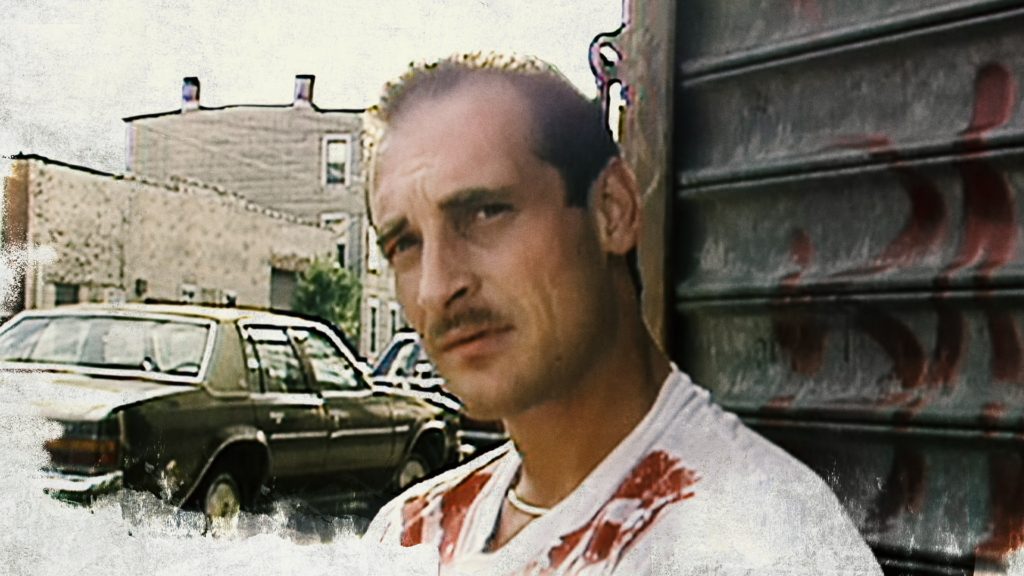Review: Life of Crime 1984-2020 (2021)

In his career as a documentarian, Jon Alpert has got two Oscars nominations for short subjects (2009 China’s Unnatural Disaster: The Tears of Sichuan Province and 2013 Redemption), three Primetime Emmy Awards for 2006 title Baghdad ER, along with several more nominations for other works and additional awards. The wider audience probably remembers him for his 2017 feature-length work Cuba and the Cameraman, but his magnum opus is a three-part verité-style series realized through the cooperation Between Downtown Community Television Center and HBO titled Life of Crime that was concluded last year.
Life of Crime 1984-2020 premiered at last year’s edition of Venice and had a brief festival tour before landing on HBO. Its festival cycle has been just restarted with the virtual screening in the Harbour section of IFFR. It is a follow-up to the 1989 mid-length TV-format Life of Crime and 1998 feature-length Life of Crime 2 (also made for TV) that follows a group of petty criminals and drug addicts from Newark, with Rob, Freddie and Deliris featuring as the main subjects.
The story follows them from their youth and the “enthusiasm” for life on the margins of society rooted in the fact that they could earn a proper week’s wage through an honest job. Due to their addiction they engage in criminal activities such as theft, drug dealing and prostitution, raising the stakes of the felony, encounters with the law, incarceration and periods of getting clean and leading the life of the up-standing citizens, until their tragic ends. Their “enterprises” are quite creative and smart, their will to “convert” and keep on track is commendable, but the system is simply rigged that way that, for them, it is easy to fall again.
Approach-wise, there are two connections to be drawn. The more obvious one is Michael Apted’s Up series, because, just like Apted, Alpert remains faithful to his characters and enjoys their trust close to friendship. The other one is stylistically aligned, but tonally polar opposite: the long-running verité TV-show Cops which glorifies the police actions against the petty offenders. Unlike the authors of the show, Alpert is more interested in criminals as the human beings, their motives to live the life they live and their inability to change due to the way system prevents them.
Since the film covers the 36-year period of time with its footage, changes in style and quality of the imagery and sound can be observed, which is expected given that the technology developed a lot during that interval. The more interesting thing is that Alpert’s goals and approach also change, as he develops the relationship with his subjects. The earlier footage is more of an exposure of the life of crime itself and the failure of the system to rehabilitate the vulnerable humans, with a dose of sensationalism to it, while in the later part he sees Rob, Freddie and Deliris primarily as friends and people he cares for, so he is less reluctant to speak to them directly and offer an advice.
However, there are some problems that need to be addressed. They are all grounded in the inconsistency which is pretty much inherent for this type of work. For instance, the “chapters” of the film are uneven in their length and depth, some are overlong and prone to repetitions, while the others would profit from more screen time that would allow a particular narrative line to develop. Also, the jumps between the time frames, from early 80s through the 90s till the beginning of the new millennium tend to be steep, which is effective in terms of letting the viewers observe the way the subjects change physically and mentally (especially after the time spent in prison), but the novelty wears off as the runtime progresses.
The story pretty much ends with Rob’s and Freddie’s death in 2002 and 2003, making the last chapter centred around Deliris’ biggest success look like a deviation of sorts (both in the sense of tone and style), until the poignant final “plot twist” that has something to do with the pandemic and the subsequent shutdown. In the end, Life of Crime 1984 – 2020 might be uneven, but it is exceptionally honest and therefore genuinely moving.
Year: 2021
Runtime: 121’
Country: USA
Languages: English, Spanish
Directed by: Jon Alpert
Written by: Jon Alpert
Cinematography by: Jon Alpert
Editing by: Patrick McMahon
Music by: Residente
Sound design by: Ron Bochar
Sound recording by: Jon Alpert
Produced by: Nancy Abraham, Jon Alpert, Lisa Heller
Production companies: Downtown Community Television Center, HBO

















2024-07-03 @ 08:51
Where can I watch the final life of crime. Please. Heard all were sober until tragic ends. Really, really need to see this